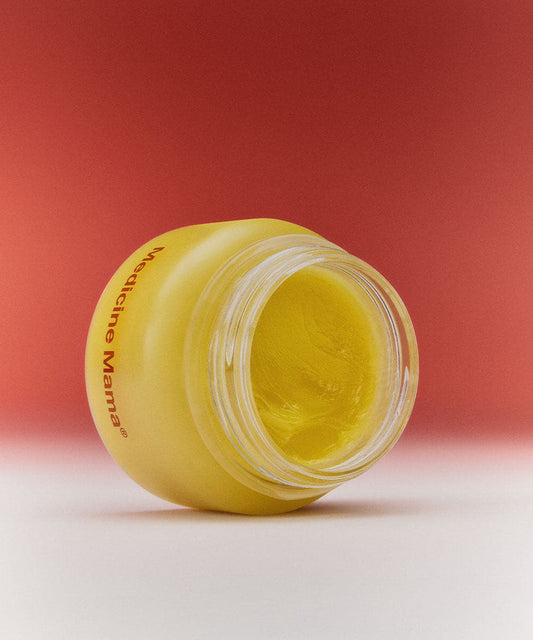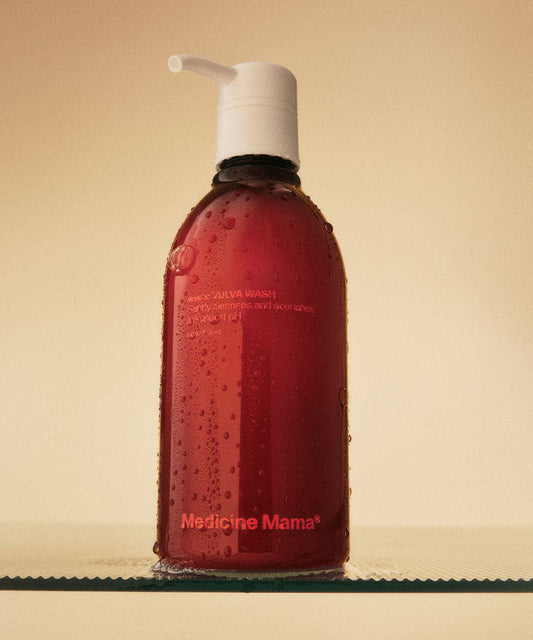Reviewed by | Dr. Clare Bertucio MD
Maintaining good vaginal health is crucial for your overall well-being and confidence. It impacts many parts of a woman's life, from daily comfort to intimate relationships. Also, understanding how to care for your vaginal health can prevent common issues like infections, dryness, and discomfort.
This guide aims to provide comprehensive information on best practices and expert advice for maintaining a healthy vagina. We'll cover topics like anatomy, common health issues, daily care routines, and the importance of regular medical check-ups.
If you're dealing with menopause, navigating the changes that come with menstruation, or simply looking to enhance your vaginal health, this guide will offer practical tips and insights to help you feel your best.
By understanding your body and implementing these strategies, you can ensure long-term vaginal health and general wellness.
What Are the Basics of Your Genital Anatomy?
A fundamental step in maintaining vaginal health is understanding the anatomy of your genital area.
- Vulva: The external part of the female genitalia is known as the vulva. It includes the labia majora and labia minora (the outer and inner lips), the clitoris, the vaginal opening, and the urethra.
- Clitoris: The clitoris is a small, sensitive organ located at the top of the vulva that plays a key role in sexual pleasure.
- Vagina: The vaginal opening leads to the vagina, a muscular canal that extends from the vulva to the cervix.
- Cervix: The cervix is the lower part of the uterus and serves as a gateway between the vagina and the uterus.
- Pelvic Floor: Above the cervix is the pelvic floor, a group of muscles that support the uterus, bladder, and rectum.
Understanding these parts will help you recognize normal functions and detect potential health issues early. For example, the vagina is a self-cleaning organ which means that it produces discharge to remove dead cells and bacteria and maintain a healthy environment. That said, the vulva requires external care to stay clean and healthy.
Regular gynecological check-ups are crucial for monitoring your vaginal health. Your healthcare provider can offer personalized advice and screenings to ensure everything is functioning properly. When you familiarize yourself with your anatomy, you can better understand your body’s signals and take proactive steps to maintain optimal vaginal health.
What Are Common Vaginal Health Issues?
Maintaining optimal vaginal health involves being aware of common issues that can arise and understanding how to manage them effectively.
Here are some prevalent vaginal health issues to be aware of:
Vaginal Infections
Vaginal infections, such as yeast infections and bacterial vaginosis (BV), are common. Yeast infections occur when there is an overgrowth of Candida, a type of yeast normally present in the vagina. Symptoms include itching, burning, and thick vaginal discharge.
BV, on the other hand, results from an imbalance of bacteria in the vagina, leading to a fishy odor and thin, grayish discharge. Both infections can be treated with over-the-counter antifungal medications or antibiotics prescribed by a healthcare provider.
Vaginal Dryness
Vaginal dryness is often associated with hormonal changes, particularly during menopause or after childbirth. It can cause discomfort, itching, and pain during intercourse.
Using water-based lubricants or moisturizers can help alleviate dryness and improve comfort. For severe dryness, hormone replacement therapy may be recommended under medical supervision.
Sexually Transmitted Infections
STIs such as chlamydia, gonorrhea, herpes, and human papillomavirus (HPV) can affect vaginal health. These infections are typically transmitted through sexual contact and may cause symptoms like unusual discharge, pain, or sores. Early detection through regular STI screenings and practicing safe sex is essential for prevention, treatment, and maintaining your sexual health.
Urinary Tract Infections
While not exclusive to vaginal health, UTIs can affect the urinary tract, including the urethra and bladder. Symptoms include frequent urination, a burning sensation during urination, and cloudy or bloody urine.
Maintaining good hygiene practices, staying hydrated, and fully emptying the bladder can help prevent UTIs. Antibiotics are often prescribed to treat UTIs.
Vaginal Atrophy
Vaginal atrophy occurs when there is a thinning, drying, and inflammation of the vaginal walls, usually due to decreased estrogen levels, especially after menopause. Some of the symptoms include vaginal dryness, itching, and pain during intercourse. Treatment options may include vaginal estrogen therapy, moisturizers, and regular sexual activity to maintain vaginal elasticity.
Understanding these common issues and their symptoms allows for early intervention and proper management. If you experience persistent symptoms or are unsure about your vaginal health, it’s always a good idea to consult with a healthcare provider for personalized guidance and treatment.
What Are the Best Practices for Daily Vaginal Care?
Maintaining good daily hygiene and care practices is crucial for promoting vaginal health and preventing common issues. In this section, we’ll cover some best practices to incorporate into your daily routine.
Gentle Cleansing
For daily intimate hygiene, a fragrance-free vulva wash can offer a simple, effective way to cleanse and care for sensitive skin without causing irritation. The best options are pH-balanced and include soothing ingredients that calm and condition delicate tissue. These cleansers help maintain the vulva’s natural ecosystem while minimizing potential triggers like dryness, itching, or inflammation.
Proper Wiping Technique
Always wipe from front to back after using the bathroom to prevent bacteria from the anus from spreading to the vagina and urethra, which will reduce your risk of getting urinary tract infections (UTIs).
Wear Breathable Underwear
Choosing cotton or other breathable fabrics for underwear will allow for air circulation and minimize moisture buildup. This can reduce your risk of developing yeast infections and bacterial overgrowth.
Avoid Douching
Resist the temptation to use douches or vaginal sprays. These products can disrupt the natural balance of bacteria and increase the risk of infections and irritation.
Practice Safe Sex
Use male or female condoms consistently and correctly to protect against sexually transmitted infections (STIs). Lubricants used with condoms should be water-based to avoid damaging latex. Using some form of birth control can also reduce your chances of pregnancy and help you regulate your menstrual cycle.
Stay Hydrated
Drink plenty of water throughout the day to maintain overall hydration. This can support mucous membrane health in the vaginal area.
Regular Check-ups
It’s also important to schedule regular gynecological exams and screenings with a healthcare provider to monitor your vaginal health, screen for STIs, and discuss any concerns or changes.
Manage Menstruation Hygienically
Change tampons, pads, or menstrual cups frequently during menstruation to prevent bacterial overgrowth. Avoid scented menstrual products, which can cause irritation.
Consider Probiotics
Some studies suggest that probiotics may help maintain healthy vaginal flora and give the good bacteria in your vagina a boost. Always talk with your healthcare provider before starting any new supplements.
How Can You Maintain a Healthy Vaginal Environment?
Maintaining a healthy vaginal environment is crucial for overall well-being and preventing infections. This section will take a close look at some key practices to promote vaginal health.
- Balanced Diet: Eating a balanced diet rich in fruits, vegetables, and probiotics supports overall health, including vaginal flora.
- Avoid Irritants: Steer clear of perfumed soaps, douches, and scented hygiene products that can disrupt the vaginal pH and lead to irritation.
- Proper Hygiene: Practice gentle cleansing with mild, unscented vulva wash and warm water. Avoid aggressive scrubbing or over-cleaning, which can strip away protective oils.
How Can You Manage Menstrual Health?
Managing menstrual health is also essential for comfort and maintaining vaginal hygiene. During menstruation, keep the following tips in mind.
- Choose Products Wisely: Use tampons, pads, or menstrual cups that suit your flow and comfort. Go for unscented products to minimize irritation.
- Change Regularly: Change menstrual products frequently to prevent bacterial overgrowth and odor.
- Think About Hygiene: Practice good hygiene by washing hands before and after handling menstrual products. Clean the external genital area with mild soap and water.
- Stay Comfortable: Use pain relievers as needed for menstrual cramps and stay hydrated to help alleviate discomfort.
- Track Your Cycle: Monitor your menstrual cycle to identify any changes or irregularities that may warrant medical attention.
What Can You Do To Address Vaginal Dryness and Lubrication?
When it comes to caring for the health of your vulva, a gentle, hormone-free vaginal moisturizer can play an essential role in easing dryness and irritation. Whether triggered by menopause, postpartum changes, sexual activity, or even personal grooming habits, vaginal dryness is manageable with the right support.
Formulated specifically for sensitive skin, these moisturizers are typically safe for daily use. They help nourish and reinforce the skin’s natural barrier, promoting softness and resilience while reducing discomfort.
Look for rich, emollient textures that absorb easily without leaving a greasy residue. Ingredients like organic plant oils and beeswax can create a breathable shield that helps lock in hydration and guard against external irritants, all while maintaining the natural pH balance of the vulvar area.
In addition to using these specialized products, consider gentle lubricants during sexual activity to enhance comfort and reduce friction. Addressing vaginal dryness promptly with appropriate products can significantly improve your quality of life and promote overall vaginal health.
Wrapping Up
By understanding your anatomy, practicing good hygiene, and addressing issues like vaginal dryness with effective products, you can enhance your comfort and confidence. Regular communication with healthcare providers, particularly gynecologists, ensures proactive management of any concerns or conditions.
Embracing healthy practices like wearing breathable underwear, using gentle cleansers, and promoting balanced pH levels supports the body's natural defenses. With these strategies, women can empower themselves to prioritize and maintain excellent vaginal health throughout every stage of life.
Disclaimer: The information provided on this blog is for general informational and educational purposes only. All content, including text, images, graphics, and other material, is not intended to be a substitute for professional medical advice, diagnosis, or treatment.
Always seek the guidance of your physician or other qualified health professional with any questions you may have regarding a medical condition, treatment, or wellness program. Never disregard the advice of a medical professional or delay in seeking it because of something you have read on this website.
Sources:
Bacterial Vaginosis (BV): Causes, Symptoms & Treatment | Cleveland Clinic
Vaginal atrophy - Symptoms & causes | Mayo Clinic
Vaginal Douching: Evidence for Risks or Benefits to Women's Health | NIH
Healthy Vaginal Microbiota and Influence of Probiotics Across the Female Life Span | NIH



